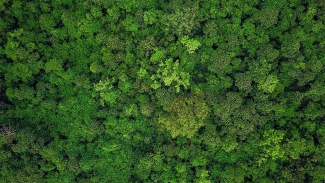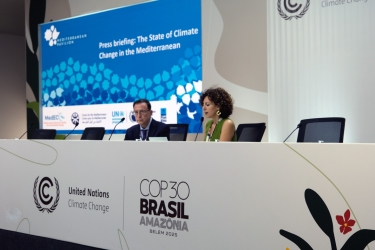Study finds carbon offset projects are overstating climate impacts

A new study published in Science has found that 94% of scrutinized forest carbon offsets were non-performing.
A pantropical sample of avoided-deforestation projects was rigorously evaluated for climate mitigation impacts, which proved to be grossly overstated. The authors call for project approaches and the underlying methods in voluntary offset markets to be urgently revised.
‘REDD+’ is the performance-based payment mechanism for reduced carbon emissions from deforestation and forest degradation. Voluntary REDD+ projects operate across the Global South, incentivizing conservation of forests via activities such as forest monitoring, local stakeholder engagement and promotion of sustainable land uses. These activities are in part funded via the sale of carbon offsets – issued on the basis of comparison between observed forest cover in the project areas, and a ‘baseline’ forecast of forest cover changes that would occur without the project.
The study evaluated the methodology used to calculate carbon offsets from 27 voluntary REDD+ projects in six tropical countries. Using synthetic control methods, the authors found that most of those projects had not significantly reduced deforestation -- and for projects that did, reductions were substantially lower than claimed through their carbon credits. The environmental integrity of the carbon credits issued by most projects under study was thus questionable.
EFI’s Sven Wunder, second author of the study, observed: “It’s critical not only to better design REDD+ projects for environmental impact, but also to develop new rigorous methods for constructing more credible deforestation baselines for voluntary REDD+ projects, to properly and regularly assess their genuine contribution to climate change mitigation.”
The article in its pre-print form contributed to an investigation into carbon standards undertaken by the Guardian, Die Zeit and SourceMaterial, which was published in January 2023 .
Reference
Action needed to make carbon offsets from forest conservation work for climate change mitigation.
Thales A. P. West, Sven Wunder, Erin O. Sills, Jan Börner, Sami W. Rifai, Alexandra N. Neidermeier, Gabriel Frey, Andreas Kontoleon.
Science, Vol 381, Issue 6660, pp. 873-877, https://doi.org/10.1126/science.ade3535


